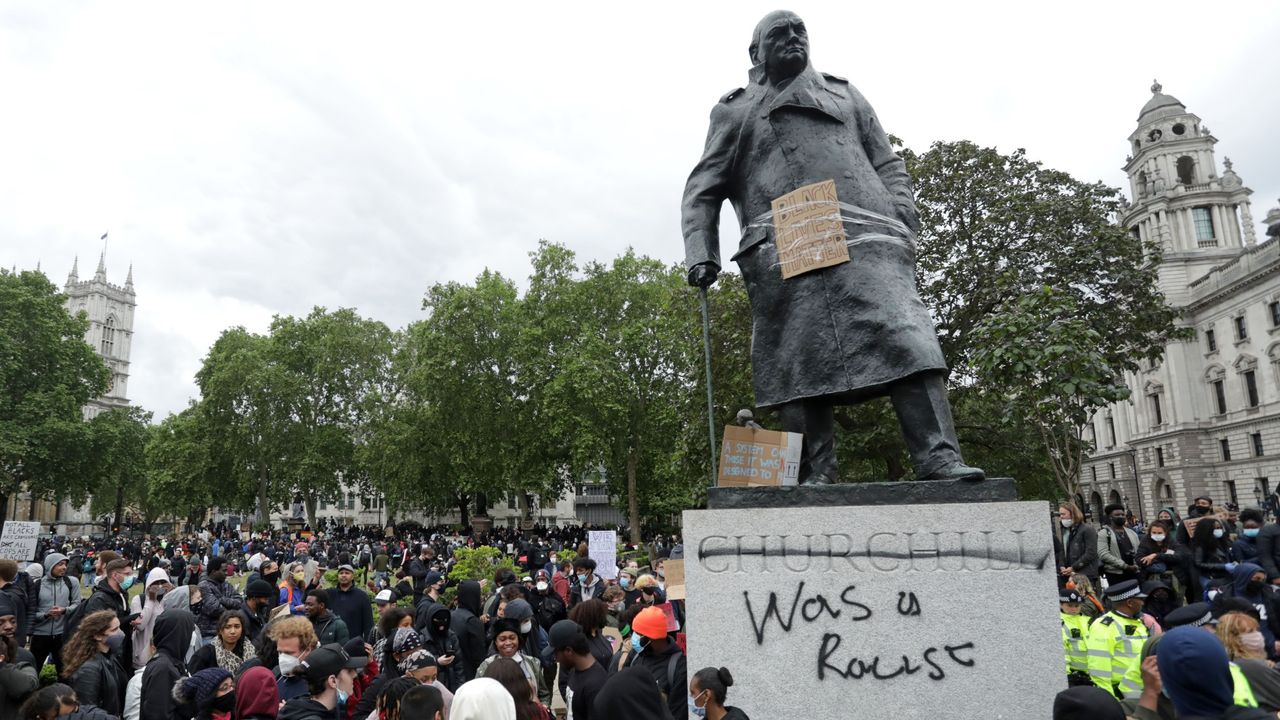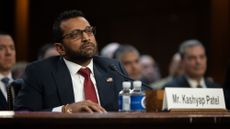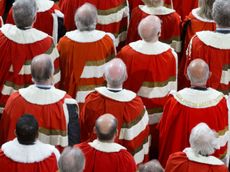The meaning of woke
School chief urges headteachers to challenge anyone who criticises young people for ‘wokeness’

Free speech on university campuses has become a frontline in the so-called culture war, with one side claiming higher education risks being dominated by “snowflake students”, while the other says that universities are simply becoming more inclusive.
And with Gavin Williamson’s latest intervention there can be little doubt about where he stands on the issue after he proposed appointing a “free speech champion” to fight “unacceptable silencing and censoring” in higher education, Sky News says.
The education secretary has also suggested the introduction of a “free speech condition” in return for universities receiving public funding and legal requirements universities to “actively promote free speech”, the broadcaster adds. The Department for Education, it would appear, is drawing a line in the sand.
Subscribe to The Week
Escape your echo chamber. Get the facts behind the news, plus analysis from multiple perspectives.

Sign up for The Week's Free Newsletters
From our morning news briefing to a weekly Good News Newsletter, get the best of The Week delivered directly to your inbox.
From our morning news briefing to a weekly Good News Newsletter, get the best of The Week delivered directly to your inbox.
Campus politics
Ministers are “proposing a raft of new laws to bolster free speech” amid a “cancel culture crackdown” that could give academics and students recourse to sue if their “free speech is violated”, The Telegraph reports.
Writing in the paper, Williamson claims that there is a “real and alarming threat” of censorship at British universities that has left students being “wrongfully expelled from their courses, academics fired and others forced to live under a threat of violence”.
“Last year, I warned our vice-chancellors and leaders of the very real and alarming threat of censorship and a ‘cancel culture’ within our universities,” the education secretary says. “Yet, despite our repeated warnings and good practice from some of institutions, I have been greatly concerned to hear a growing number of reports of a silencing of voices and a chilling effect of censorship on campus.”
Under the new legislation, “academics, students or visiting speakers who are no-platformed” will have the ability to “sue universities for compensation where they feel they have suffered because of free speech infringements”, The Guardian says.
Existing legislation contains no specific right for individuals to seek compensation for breach of the freedom of speech duty. Individuals can currently pursue a judicial review of the university’s decision, however, “this does not establish any private law rights”, The Telegraph adds.
Speech clampdown?
In 2018, a study by the Joint Committee on Human Rights found numerous efforts to shut down debates in UK universities.
The report specifically honed in on “safe spaces” within higher education, stating that “universities must be places where open and uncensored debate (within the law) can take place so students can think for themselves and develop their own opinions on ideas which may be unpopular, controversial or provocative”.
“However, the concept of safe spaces is either too broad or very vague and therefore we do not find it helpful,” the study said. “University is an environment where a range of opinions should be heard and explored. Minority views should not be barred from student union premises.”
The same year, Conservative MP Jacob Rees-Mogg was “at the centre of a fracas in Bristol” in which “masked protesters hurled abuse at him and tried to disrupt” a speaking event, Sky News reports.
In 2019, the Court of Appeal ruled that Sheffield University had used a “flawed and unfair” process to dismiss a student studying for an MA in social work after he wrote a series of Facebook posts that described homosexuality as a “sin” and “wicked”.
Williamson’s plans will also include forcing students’ unions to “take steps to ensure lawful free speech for members and visiting speakers” and creating a mechanism for the “Office for Students regulator to fine institutions if they breach the rules”, Sky News adds.
Storm in a teacup?
The Russell Group of universities has “responded cautiously to the announcement”, the BBC reports, releasing a statement saying that “it is important that proposals in this government policy paper, if taken forward, are evidence-based and proportionate, with due care taken to ensure academic freedom and institutional autonomy”.
“Government should support existing work by universities and students’ unions to defend and maintain freedom of expression on campus, rather than adding unnecessary and burdensome bureaucracy,” they added.
The National Union of Students, meanwhile, was more resolute in its rejection of Williamson’s proposals, with vice-president for higher education, Hillary Gyebi-Ababio, arguing that “students’ unions are committed to freedom of expression and are the very home of rigorous debate and new ideas”.
“There is no evidence of a freedom of expression crisis on campus, and students’ unions are constantly taking positive steps to help facilitate the thousands of events that take place each year,” she said.
Critics have suggested that “the legislation will be fraught with difficulties and fiercely opposed by many”, The Guardian says, including the University and College Union (UCU), which said the government is “fighting phantom threats to free speech”.
UCU General Secretary Jo Grady said that the government should instead be “taking action to contain the real and present danger which [Covid] poses to staff and students”. “In reality the biggest threats to academic freedom and free speech come not from staff and students, or from so-called ‘cancel culture’, but from ministers’ own attempts to police what can and cannot be said on campus.”
However, not all academics oppose Williamson’s suggestions, with Matthew Goodwin, a professor of politics at the University of Kent, writing in the Daily Mail that “there is a long list of academics in Britain’s universities who have found themselves marginalised or intimidated by fellow academics, administrators or students”.
“Too often, our universities have lost sight of why they are there,” he continues. “Only by encouraging every diverse idea to be presented and challenged can they possibly remain among the best in the world.”
Sign up for Today's Best Articles in your inbox
A free daily email with the biggest news stories of the day – and the best features from TheWeek.com
-
 The Week contest: Hotel seal
The Week contest: Hotel sealPuzzles and Quizzes
By The Week US Published
-
 New FBI Director Kash Patel could profit heavily from foreign interests
New FBI Director Kash Patel could profit heavily from foreign interestsThe Explainer Patel holds more than $1 million in Chinese fashion company Shein
By Justin Klawans, The Week US Published
-
 Magazine solutions - February 28, 2025
Magazine solutions - February 28, 2025Puzzles and Quizzes Issue - February 28, 2025
By The Week US Published
